Ford Mustang (1999-2004) Service Manual: Muffler - 4.6L (2V)
Removal and Installation
1. Use a jack to support and lower the rear axle.
2. Remove the upper arm-to-differential bolt.
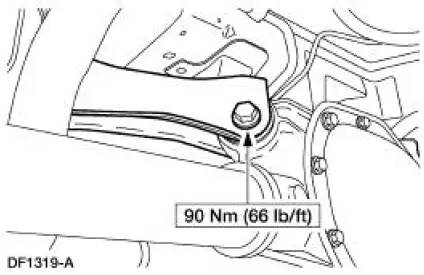
3. Remove the nut and bolt, and disconnect the rear shock absorbers (18124) from the axle housing.
- Discard the nut.
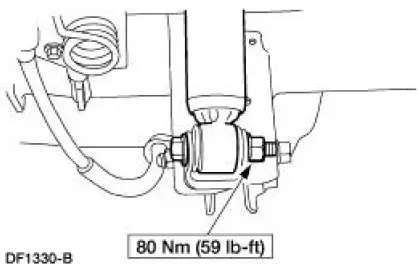
4. Lower the rear axle.
5. Remove the dual converter assembly nuts. (RH shown, LH similar.)
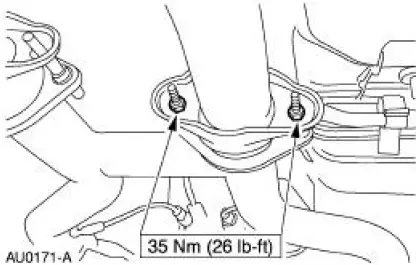
6. Remove the RH intermediate exhaust hanger insulator.
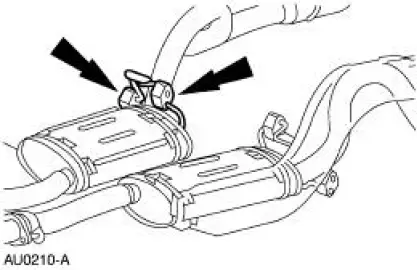
7. Remove the RH muffler (5230) from the rear exhaust hanger insulator (5260).
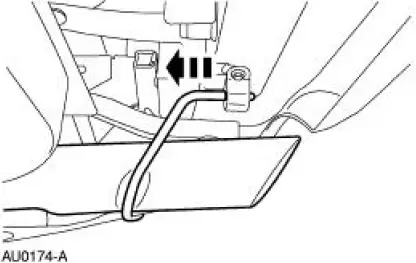
8. Remove the LH muffler (5230) from the rear exhaust hanger insulator (5260).
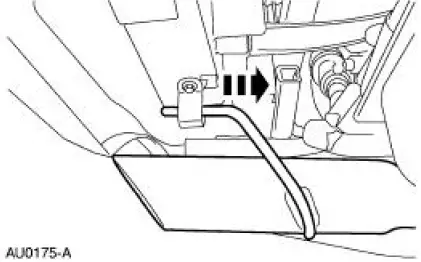
9. Remove the LH intermediate exhaust hanger insulator.
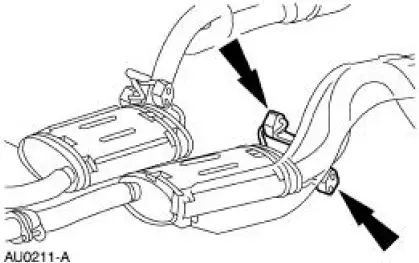
10. Remove the LH and RH mufflers.
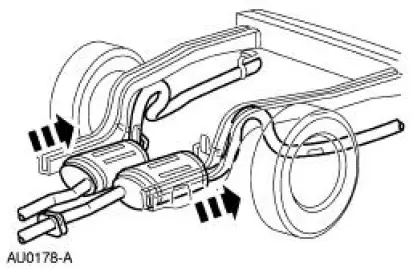
11. CAUTION: Do not use oil or grease-based lubricants on the insulators as they deteriorate the rubber.
NOTE: A soap-and-water solution will ease installation of the exhaust hanger insulators.
To install, reverse the removal procedure.
 Muffler - 3.8L
Muffler - 3.8L
Removal and Installation
1. Raise and support the vehicle. For additional information, refer to
Section.
2. Support the rear axle with a suitable jack.
3. Remove the upper arm-to-differential bolt. ...
 Muffler - 4.6L (4V)
Muffler - 4.6L (4V)
Removal and Installation
1. Raise and support the vehicle. For additional information, refer to
Section.
2. NOTE: RH side shown, LH side similar.
Remove the dual converter assembly nuts.
3. Remove ...
Other materials:
Camshaft End Play - Push Rod Engines
Special Tool(s)
Dial Indicator Gauge with
Holding Fixture
100-002 (TOOL-4201-C) or
equivalent
1. Remove the valve tappets. Refer to the appropriate section in Group 303
for the procedure.
2. Use a Dial Indicator Gauge with Holding Fixture ...
Handles, Locks, Latches and Mechanisms
General Specifications
Torque Specifications
LOCK REPAIR/REPLACEMENT SPECIFICATIONS
...
Floor Console
Removal and Installation
All vehicles
1. Disconnect the battery ground cable. For additional information,
refer to Section .
2. Apply the parking brake.
Vehicles with automatic transmission
3. Place the selector lever in the 1 position.
Vehicle ...
